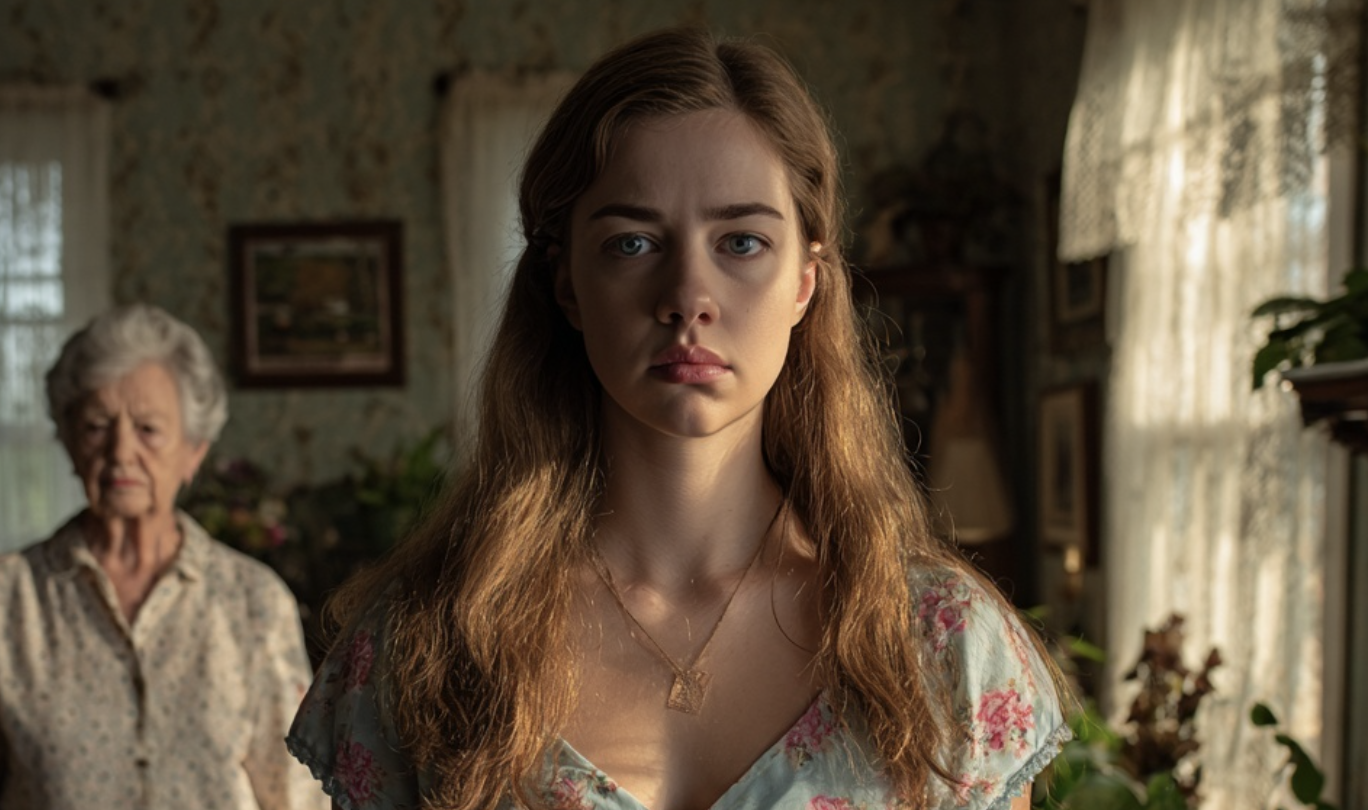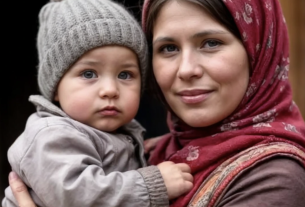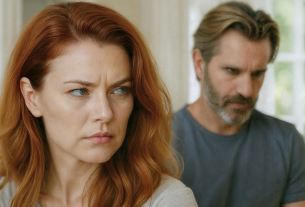I never imagined greed could so grotesquely distort a human face. When Valentina Mikhailovna learned the size of the inheritance, her eyes lit up with such a covetous gleam that I involuntarily recoiled. At that moment, the mask of decency fell away completely, exposing her true essence. Money has the power to turn even the closest of people into predators.
Greetings, dear readers! Today I want to share another story from my psychotherapy practice. A client came to me with a problem rooted deeply in family relationships.
In most families, the central figure is the mother. But in Elena’s case, that wasn’t so. For me and my sister, our whole universe was our grandfather — Fyodor Mikhailovich Borisov. Thanks to him, we avoided the fate of orphanage children and grew up in an atmosphere of love and care.
Elena and I were almost the same age — just a year apart. Our mother, judging from the few photographs and stories, had been a striking beauty, like a Soviet film star — huge blue eyes, golden curls, a finely sculpted figure. Where such beauty came from remained a mystery, but everyone acknowledged her extraordinary looks. Yet beauty alone proved insufficient for happiness. Mother fell in love too soon — she wasn’t even eighteen when she got pregnant. Her parents panicked and appealed to the young man’s family. They turned out to be decent people and forced their son to marry her. That’s how Elena was born. A year later, I arrived — and our father disappeared from our lives. He cut off all ties, gave no financial support, simply erased us from his existence. Mother couldn’t cope with the blow. At first, she cried constantly, then seemed to calm down and found a job in a dubious establishment. She never learned to love us. She left us hungry, poorly dressed, often sick. Eventually, the authorities took us away, planning to place us in an institution. That’s when Grandpa stepped in. Grandma had already passed away — quietly, a month after my birth.
Grandpa wasn’t afraid of responsibility. He took us in. He was still working then, while we went to kindergarten. On weekends, he sometimes asked our kind neighbor, Aunt Varvara — a single middle-aged woman with five affectionate cats — to watch us. She played with us, fed us, cuddled us, and told us fairy tales. She admired Grandpa and helped however she could.
“I just don’t understand your mother, Katyushka,” Aunt Varvara once told me. “Some women, like me, pray all their lives for a child, but God doesn’t give them one. And your mother was given two — to love, to raise, to cherish… and she tossed it all away.”
I would smile sadly, not knowing what to reply. I couldn’t understand either how someone could abandon her own daughters. Even as children, Elena and I often wondered what kind of mothers we would be. We always agreed: a child is an entire universe — we could never abandon our own.
Grandpa did everything to make sure we lacked nothing — he worked hard, didn’t skimp on food or clothes, and kept a household with livestock and a garden. We grew up helping him however we could. Both of us studied diligently to make him proud. Even as children, we understood Grandpa had saved us from a grim fate. And in the end, both of us graduated with honors and went on to university. Though we had to move to the city, we never abandoned Grandpa — every weekend and holiday we visited him, helping with chores. He aged, but he never gave up his garden. “Only for your sake did I live this long, didn’t follow after my Nadya,” he would say, remembering Grandma. “Such beauties you’ve become — I can’t get enough of you, girls!”
Later, I met Andrey. We were heading toward marriage. Elena wasn’t interested in young men — she was focused entirely on her studies. But I was in my final year and didn’t want to miss the chance with such a good man. Andrey worked in a repair company, earned decent money, and was attentive and caring. When he introduced me to his mother, Valentina Mikhailovna, she immediately declared:
“You’re not worth my son’s little finger!”
I would hear her opinions of my “unworthiness” many more times. But I ignored them. After all, I was marrying Andrey, not his arrogant mother.
We quietly registered our marriage at the registry office. Grandpa cried and hugged us. My mother-in-law didn’t even show up. She thought I came from a bad family, that my “bloodline” was tainted, and speculated about what kind of grandchildren I could possibly bear. Andrey tried to stop her, but I already knew I wasn’t like my parents — no bad habits, raised by Grandpa, with completely different life goals. I would never turn out like my mother — that I knew for certain.
Andrey and I rented an apartment, saving for our own. His mother rarely visited, which suited me — every visit was a trial. We were happy together. Then Grandpa passed away. He hadn’t complained of illness, still worked in his garden, where a neighbor later found him. The grief was crushing. My sister and I cried endlessly. There was so much unsaid, so much left undone.
Andrey supported me as best he could. Grief consumed me; I could hardly eat or sleep. I often dreamt of Grandpa — standing on the far bank of a river, waving to me with a warm smile. I’d call out, but he only shook his head, as if to say, “No, you can’t cross, my girl.”
When the mourning days ended, the pain softened a little. From Grandpa we inherited a strong, spacious house in the village. Elena and I were the only heirs. But we hadn’t yet discussed what to do with it. Elena couldn’t even think about the house through her grief. My mother-in-law, however, quickly showed her true colors. Learning that I had inherited property, she began visiting more often.
“How nice it would be for me to have a summer cottage!” she cooed.
“Buy one, if you want,” I replied indifferently.
“Do you take me for a millionaire? My pension is peanuts!” she exclaimed.
“Then what do you expect? We can’t help right now — we’re saving ourselves.”
“Sell your grandfather’s house. I’ll need the money. Buyers will be here soon,” she declared bluntly.
I was shocked. “How can I sell it? My sister is an equal heir. Are you in your right mind?”
“We’ll persuade her, give her a share of the money!” she rubbed her hands greedily.
“There’s no question of selling! Only forty days have passed, and inheritance isn’t finalized for another six months. Everything must be discussed with my sister.”
“Don’t be childish! We’ll bribe the right people and smooth it over.”
“Valentina Mikhailovna, get out of my home! I don’t want to see or hear you again!”
Andrey walked in during this argument.
“Mom, why are you meddling?”
“At least let me get a cottage out of your foolish wife!” she snapped. “You’re the man — bang your fist on the table and tell your wife what to do!”
“I’m not getting involved,” Andrey said firmly. “This inheritance belongs to Katya and Elena. It’s their decision.”
“Oh, so that’s how you talk to your mother since you married! She’s bewitched you, that Katya! You’ll regret this!”
She stormed out, slamming the door. Andrey hugged me tightly, apologizing.
Months later, we bought our own apartment. Elena and I decided not to sell Grandpa’s house — we would keep it in the family. Every corner held memories of him. His glasses still lay on the side table, firewood stacked by the stove, a towel hanging by the washstand. Visiting made us feel he was still near.
That spring, Andrey suggested we plant a garden in Grandpa’s memory. Elena came too, and we spent the summer there. I was pregnant with our first daughter, making preserves from Grandpa’s recipes. The grief had softened into warm remembrance.
Andrey loved listening to stories about Grandpa. The house wasn’t abandoned — it lived, it thrived. He even renovated it. The following year, we planned to build a new bathhouse.
My mother-in-law disappeared from our lives, sulking and gossiping to neighbors about how terribly we had wronged her. But we felt no guilt. It wasn’t her place to meddle in our inheritance.
Then little Anna was born, and all sorrow was forgotten. She was adored by everyone — especially Elena. I thanked Grandpa every day: without him, none of this would have been possible.
By then Elena had finished her studies and was engaged to a wonderful man. I was certain she too would have a happy family.
My client and I continue working through this story together, examining causes and consequences. The therapeutic work is paying off, and her condition improves.



